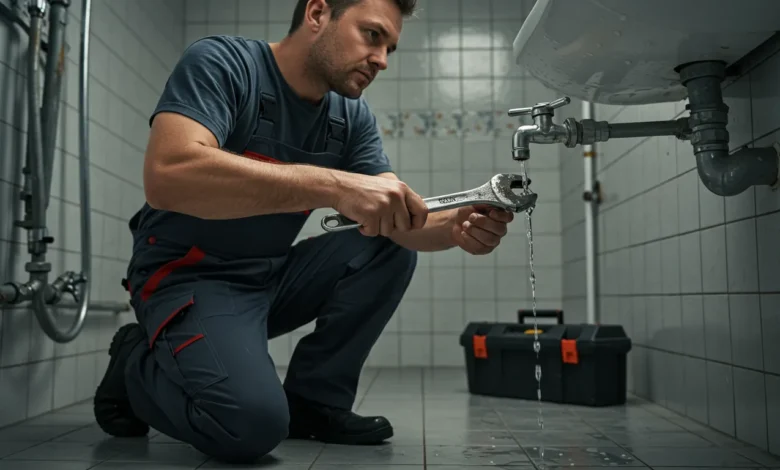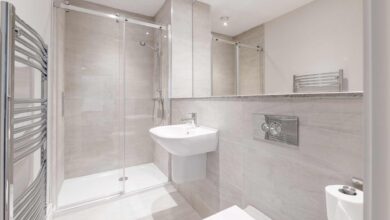The Future of Plumbing: Innovations Shaping the Trade

Introduction to Modern Plumbing
The plumbing industry has long been recognized as a fundamental public health and hygiene player amid a significant technological transformation. This metamorphosis is driven by the need for efficiency, conservation, and innovative plumbing solutions that respond to modern-day challenges. Amidst these advancements are Apprenticeship Programs for Plumbers, which are crucial in training upcoming professionals to meet these evolving demands. These programs ensure that plumbers are proficient in traditional skills and well-versed in contemporary technologies that define modern plumbing systems.
Modern plumbing goes beyond its basic functionalities of moving water from point A to point B. It increasingly integrates with innovative technologies, sustainability practices, and automation, forming a complex ecosystem offering advanced solutions for homes and businesses. This convergence of technology and traditional practice is set to redefine how we think about and interact with water systems, rising to meet both human and environmental health standards.
Smart Technologies in Plumbing
Integrating innovative technologies into plumbing has led to unprecedented advancements in how these systems operate. These innovative solutions, equipped with the Internet of Things (IoT) capabilities, transform residential and commercial water management. Imagine a world where your plumbing system identifies and predicts issues before they become significant problems. This is increasingly becoming a reality. For instance, smart water sensors detect leaks immediately, sending instant alerts to your smartphone and allowing you to take immediate action. According to National Geographic, these intelligent systems contribute significantly to water preservation by allowing consumers to monitor and reduce water usage proactively, thus playing a crucial role in sustainable living.
Moreover, integrating these technologies with existing smart home systems means seamless interaction and increased control over residential environments. The possibilities are vast and transformative, from app-controlled sprinkler systems that maximize irrigation efficiency to toilets that analyze waste to offer health diagnostics.
Sustainable Plumbing Practices
Sustainable plumbing practices are increasingly important as the world confronts climate change and water scarcity. Low-flow fixtures are now widely used in homes and businesses to reduce water consumption without sacrificing performance. Greywater recycling systems, which reuse wastewater from baths, sinks, and washing machines, are also rising. Additionally, rainwater harvesting is gaining popularity, allowing households to collect rainwater for irrigation and other non-potable uses, reducing reliance on municipal water supplies. These sustainable practices are expected to become standard in plumbing systems worldwide, promoting better environmental stewardship in water management.
The Role of Automation and Robotics
Like many other industries, plumbing is leveraging automation and robotics to enhance efficiency and reduce labor costs. Automated systems perform routine tasks, such as adjusting water pressures and temperatures, more accurately than manual labor, improving reliability and minimizing costly errors. Robotics contributes significantly to plumbing by allowing robots to inspect sewer pipes and assist with complex installations. As Forbes noted, collaborative robots improve safety and productivity by handling dangerous tasks and reducing human exposure to hazards. As these technologies advance, they will play an even more crucial role in improving the efficiency and safety of plumbing systems.
Plumbing Education and Training for the Future
With the rapid pace of technological advancements, a new breed of plumbers is necessary—those with both traditional skills and technological proficiency. Training programs are pivotal in filling this gap. These apprenticeships provide hands-on experience while integrating cutting-edge technologies into their curricula. As a result, apprentices graduate with a unique understanding of both the mechanical and digital aspects of plumbing.
Furthermore, these programs emphasize the importance of continuous learning and adaptation, which are essential skills as the industry evolves. By maintaining a curriculum that reflects the latest industry standards and innovations, these training programs ensure that future plumbers are prepared to contribute effectively to a digital and sustainable society.
How Regulations Are Adapting to Innovations
As plumbing technologies evolve, so must the regulations that ensure their safe and efficient use. Regulatory frameworks are constantly updated to accommodate new technologies, considering their potential benefits and risks. This requires a delicate balance between encouraging innovation and ensuring safety and reliability. For instance, new building codes are being formulated to mandate the inclusion of water-efficient fixtures and systems in new developments. Environmental regulations are also adapting to encourage using sustainable materials and practices in plumbing projects. These evolving regulations help drive the industry towards more sustainable and efficient practices and stimulate innovation by providing clear guidelines and standards for new technologies.
The Economic Impact of Plumbing Innovations
The wave of technological innovations in plumbing is yielding significant economic benefits. These innovations reduce operating costs for homes and businesses by making systems more efficient. The demand for new technologies has also created jobs and business opportunities, particularly in innovative plumbing systems, sustainable practices, and IoT integration.
Furthermore, as plumbers are required to learn to handle new technologies, there is a growing need for specialized training and education, which drives investment in educational infrastructures. This investment promotes a skilled workforce equipped to handle the intricacies of modern plumbing systems.
The Future Outlook for the Plumbing Industry
The future of plumbing is promising, driven by innovation and sustainability. Integrating artificial intelligence and machine learning will enable systems to self-diagnose issues and optimize operations, enhancing efficiency and reliability. A strong focus on eco-consciousness will lead to the development of sustainable plumbing solutions, including advanced water recycling systems and reduced reliance on non-renewable resources. The plumbing industry must adapt to these technological and environmental trends to succeed. Overall, the journey ahead for plumbing combines technology and sustainability, ensuring its vital role in shaping infrastructure and delivering essential services worldwide.




